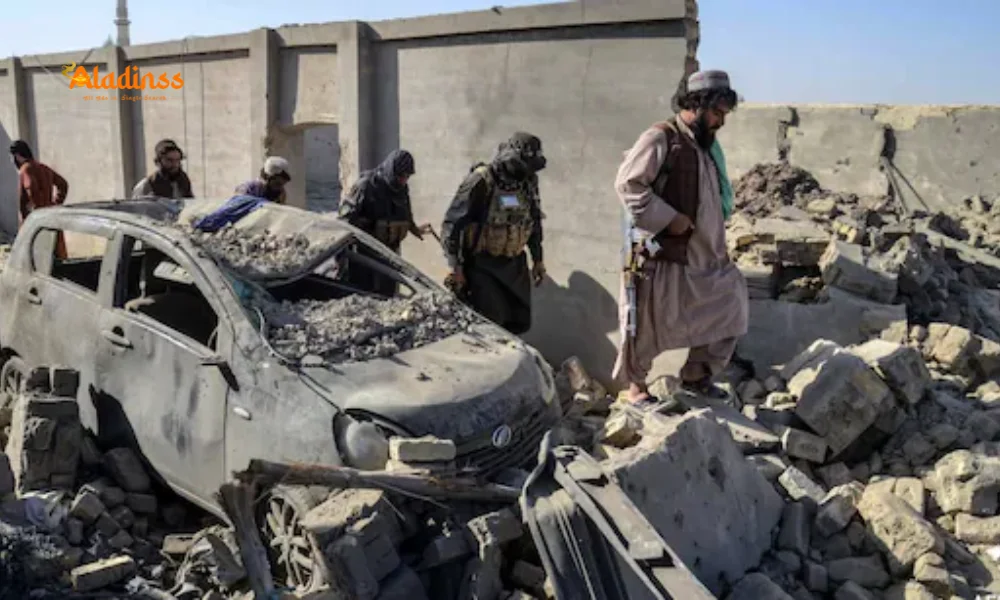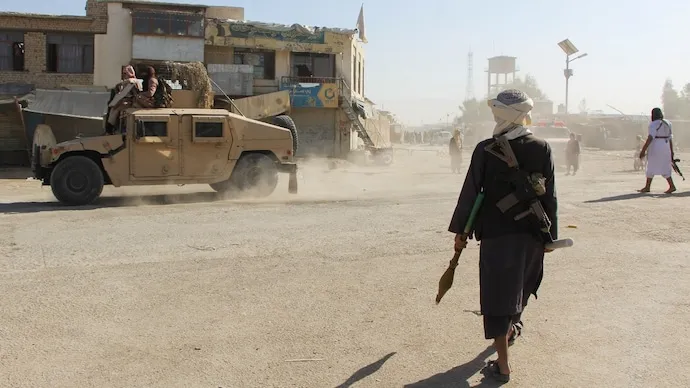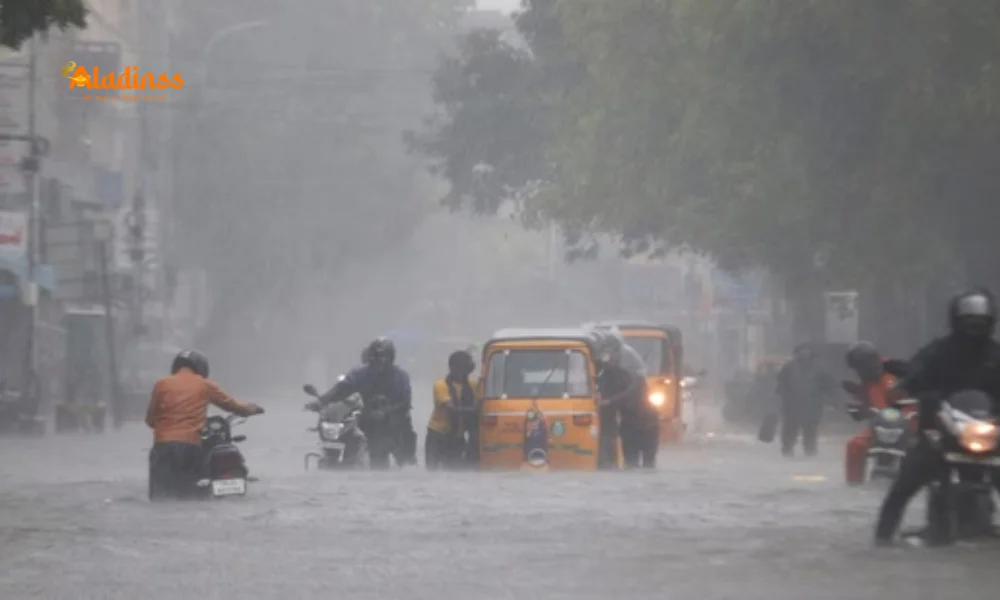Deadly Pakistan Strike in Afghanistan Claims 10 Lives, Tensions Rise

Pakistan-Afghanistan Conflict Escalates with Deadly Airstrikes
Tensions between Pakistan and Afghanistan surged after Pakistan conducted airstrikes in Afghanistan’s Paktika province, resulting in the deaths of at least 10 civilians, including two children. The strikes, which occurred late last night, have shattered a fragile 48-hour ceasefire, prompting the Taliban to accuse Pakistan of violating the truce. A senior Taliban official, speaking anonymously, confirmed the attacks targeted three locations, vowing retaliation for the aggression. The renewed violence has intensified an already volatile situation along the contested border, raising fears of further escalation.
The airstrikes follow a week of intense clashes between the two nations, with both sides reporting significant casualties. Pakistan’s military claimed the strikes were precise, targeting the Hafiz Gul Bahadur Group, a faction linked to the Tehreek-e-Taliban Pakistan (TTP), which Pakistan accuses of orchestrating attacks from Afghan soil. However, the strikes have drawn condemnation from Afghan authorities, who argue that civilians bore the brunt of the violence. A provincial hospital official reported 12 others were injured in the attacks.

Ceasefire Shattered Amid Ongoing Tensions
The airstrikes come just hours after both nations agreed to extend their temporary ceasefire until talks in Doha could be concluded, according to sources cited by Reuters. The fragile truce was initially established on Wednesday to halt a week of bloody skirmishes along the border. However, Pakistan’s latest military action has unraveled this agreement, with the Taliban claiming it undermines diplomatic efforts. Zabihullah Mujahid, the Afghan Taliban spokesperson, emphasized that Kabul had instructed its forces to uphold the ceasefire unless provoked.
The conflict escalated dramatically last weekend during a visit by the Taliban’s foreign minister to India, a move that reportedly irked Pakistan. Ground fighting intensified, with both nations deploying forces and Pakistan launching additional airstrikes. The violence has claimed dozens of lives on both sides, with each accusing the other of failing to curb militancy. Pakistan has repeatedly criticized the Taliban-led Afghan government for allegedly sheltering TTP militants, a claim Kabul denies, asserting that Pakistan must address its own security challenges.
Civilian Toll and Regional Impact
The human cost of the conflict has been devastating. Among the casualties in Paktika were two children, highlighting the tragic impact on civilians. The Afghanistan Cricket Board (ACB) also reported the loss of three Afghan cricketers in the strikes, prompting the board to withdraw from a planned T20 tri-series with Pakistan and Sri Lanka, scheduled for November 17. This decision underscores the broader regional repercussions of the violence, affecting cultural and sporting ties.
In Pakistan, a deadly suicide attack near the North Waziristan district on Friday claimed the lives of seven soldiers and injured 13 others. Pakistani security officials reported that militants used an explosive-laden vehicle to breach a military camp’s boundary wall, with two other attackers killed during the assault. The attack, attributed to the Hafiz Gul Bahadur Group, further fueled Pakistan’s resolve to target militant hideouts across the border.
Diplomatic Efforts and International Response
Diplomatic efforts to resolve the crisis have been strained. Pakistan Prime Minister Shehbaz Sharif defended the airstrikes, stating that Pakistan had “lost patience” after repeated militant attacks. He expressed willingness to engage in talks but emphasized that Pakistan would not tolerate further provocations. Meanwhile, the Taliban has called for restraint, urging both sides to prioritize dialogue over violence.
US President Donald Trump has offered to mediate the conflict, describing it as “an easy one to solve” if necessary. His statement comes amid growing international concern over the escalating violence in South Asia, a region already grappling with complex security dynamics. The international community has urged both nations to de-escalate and pursue diplomatic channels to address their grievances.
Underlying Causes of the Conflict
The root of the Pakistan-Afghanistan conflict lies in longstanding disputes over border security and militancy. Pakistan accuses the Taliban-led Afghan government of failing to crack down on TTP militants, who have escalated attacks within Pakistan. The TTP, a distinct entity from the Afghan Taliban, has been responsible for numerous attacks, including the recent suicide bombing in North Waziristan. Afghanistan, in turn, argues that Pakistan’s internal security lapses are to blame, rejecting claims of providing safe havens for militants.
The contested Durand Line, the colonial-era border separating the two nations, remains a flashpoint. Both sides have engaged in sporadic clashes over the years, but the recent surge in violence marks one of the deadliest periods in recent history. The involvement of groups like the Hafiz Gul Bahadur Group has further complicated the situation, as Pakistan seeks to neutralize threats emanating from Afghan territory.
What Lies Ahead?
The breakdown of the ceasefire has cast a shadow over ongoing talks in Doha, where both nations had hoped to find a path to de-escalation. The Taliban’s threat of retaliation raises the specter of further violence, potentially drawing in other regional actors. The international community, including the United States, has called for restraint, emphasizing the need for dialogue to prevent a broader conflict.
The loss of civilian lives, including children and Afghan cricketers, has amplified calls for accountability. Humanitarian organizations have expressed concern over the impact on local communities, particularly in border regions where access to medical care and resources is limited. As tensions continue to simmer, the path to peace remains uncertain, with both nations grappling with internal and external pressures.
The Pakistan-Afghanistan conflict underscores the fragility of regional stability in South Asia. As both nations navigate their complex relationship, the international community watches closely, hoping for a resolution that prioritizes peace and civilian safety. With diplomatic efforts faltering and militancy on the rise, the road ahead will require careful navigation to avoid further bloodshed.
Comment / Reply From
No comments yet. Be the first to comment!











